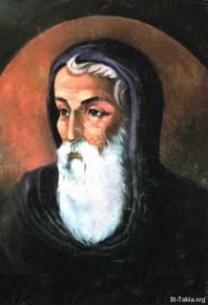In his defense of the Christian faith against pagan criticism, commonly called Apologia and written circa 177 and addressed to the Roman emperors Marcus Aurelius and his son Commodus, Athenagoras of Athens (c. 133-190) sets out the main features of the gospel in a clear and reasonable manner. The early Christians were accused of atheism on account of their refusal to worship the emperor (and Roman gods). In this excerpt, in which Athenagoras explains what Christians believe about God, important anticipations of later thinking on the Trinity can be detected:
“So we are not atheists, in that we acknowledge one God, who is uncreated, eternal, invisible, impassible, incomprehensible, and without limit. He is apprehended only by the intellect and the mind, and is surrounded by light, beauty, spirit, and indescribable power. The universe was created and ordered, and is presently sustained, through his Logos… For we acknowledge also a ‘Son of God.’ Nobody should think it ridiculous that God should have a son. Although the pagan poets, in their fictions, represent the gods as being no better than human beings, we do not think in the same way as they do concerning either God the Father or God the Son. For the Son of God is the Logos of the Father, both in thought and in reality. It was through his action, and after his pattern, that all things were made, in that the Father and Son are one… [The Son] is the first creation of the Father – not meaning that he was brought into existence, in that, from the beginning, God, who is the eternal mind (nous), had the Logos within himself, being eternally of the character of the Logos (logikos). Rather, it is meant that he came forth to be the pattern and motivating power of all physical things… We affirm that the Holy Spirit, who was active in the prophets, is an effluence of God, who flows from him and returns to him, like a beam of the sun.”
– Athenagoras of Athens (c. 133-190), Apologia, X, 1-4

